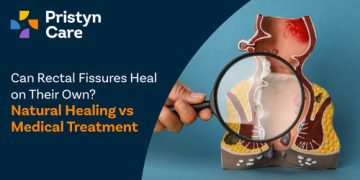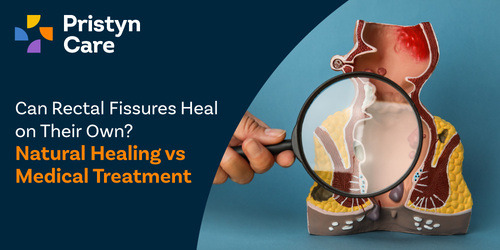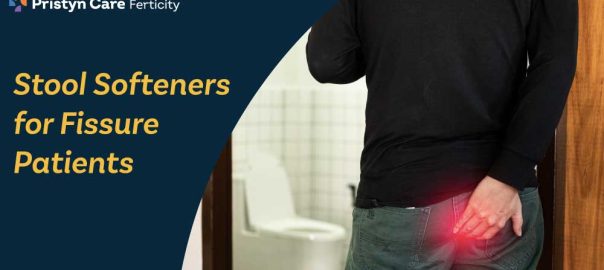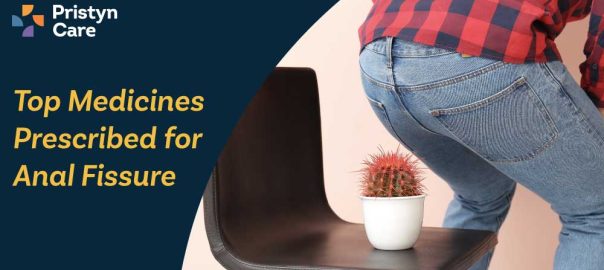![]() Views: 458
Views: 458
Can Rectal Fissures Heal on Their Own? Natural Healing Vs. Medical Treatment
Dedicated Support at Every Step!
Our Doctors are available 24 hours a day, 7 days a week to help you!
This article talks about both natural healing processes and medical treatments available for rectal fissures. We will discuss lifestyle adjustments and home remedies that may aid in natural recovery and outline when medical rectal fissure treatment becomes necessary, including pharmacological options and surgical interventions. This approach will provide a clear understanding of how to manage and potentially heal rectal fissures.
Table of Contents
Exploring Rectal Fissures: Definition, Symptoms, and Causes
Rectal fissures are linear tears in the mucosal lining of the anus, often resulting from overstretching during bowel movements. These fissures can cause severe pain and bleeding, particularly during or following defecation.
Symptoms typically include a sharp pain that may be accompanied by a noticeable streak of bright red blood. The most common cause of rectal fissures is constipation, where hard stools and straining during bowel movements create significant stress on the anal lining.
Other contributing factors may include chronic diarrhoea, inflammatory bowel diseases, and trauma from childbirth or anal intercourse. Understanding these factors is crucial for effective management and prevention of further complications associated with rectal fissures.
No Cost EMI, Hassle-free Insurance Approval
Natural Healing of Rectal Fissures
When dealing with rectal fissures, the prospect of natural healing is a welcome one for many individuals seeking relief from this painful condition.
Conditions Under Which Fissures May Heal Naturally
Rectal fissures, particularly those that are recent or acute, can often heal naturally if the conditions are favourable. Acute fissures that have occurred recently (less than six weeks ago) have the best chance of healing without medical intervention. The key to natural healing lies in reducing strain and irritation in the anal area, which allows the tear to heal more effectively.
Time Frame For Natural Healing
The healing time for rectal fissures can vary significantly depending on individual circumstances and the severity of the fissure. Generally, acute fissures can heal within a few weeks, provided that there are no underlying conditions that might impede the healing process, such as persistent constipation or recurrent diarrhoea.
It is crucial for individuals to monitor their symptoms during this period, as lack of improvement might necessitate medical intervention.
Lifestyle And Home Remedies To Support Natural Healing
Adopting certain lifestyle changes and home remedies can greatly enhance the natural healing process of rectal fissures.
1. Dietary Adjustments For Softer Stools
A crucial aspect of rectal fissure treatment is to ensure that stool remains soft to prevent the fissure from worsening. Including a high-fibre diet is essential, as fibre helps to soften stools and promotes regular bowel movements.
Foods rich in fibre include fruits, vegetables, whole grains, and legumes. For individuals who find it challenging to incorporate sufficient fibre from foods, a fibre supplement can be an effective alternative. However, it’s important to increase fibre intake gradually to avoid bloating and gas.
2. Importance of Hydration
Adequate hydration is another vital component in the treatment of rectal fissures. Drinking plenty of fluids helps in softening the stool and makes passing it less painful and straining.
Water is the best choice; however, non-caffeinated, non-alcoholic beverages can also contribute to daily fluid intake. Adults should aim for about 8 glasses of fluid per day, but this might need to be increased when consuming a high-fibre diet.
3. Sitz Baths and Their Benefits
Sitz baths, which involve sitting in warm water for 10-20 minutes several times a day, especially after bowel movements, can provide significant relief.
This practice not only helps in cleaning the area gently without irritation but also increases blood flow to the anal region, promoting healing and reducing symptoms such as pain and itching. The warmth of the water helps relax the sphincter muscle, thereby easing discomfort associated with fissures.
These natural remedies, when implemented consistently and correctly, can effectively support the healing of rectal fissures, minimising the need for more invasive treatments.
Medical Treatments for Rectal Fissures
While natural remedies can be effective for minor or acute rectal fissures, more persistent or severe cases often require professional medical intervention.
When to Seek Medical Treatment
It is crucial to seek medical advice for rectal fissures if natural healing measures fail, especially if the symptoms persist beyond a few weeks or worsen. Signs that indicate the need for professional rectal fissure treatment include severe pain, heavy bleeding, or symptoms of infection such as fever. Prompt medical evaluation can prevent complications and address underlying health issues that might be contributing to the fissure.
Overview of Available Medical Treatments:
Medical interventions vary based on the severity and persistence of the fissure, ranging from simple topical treatments to more invasive procedures.
Topical Medications (Nitroglycerin, Calcium channel blockers)
Topical treatments are often the first line of medical rectal fissure treatment. These include:
- Nitroglycerin ointment: Helps lower the tone of the anal sphincter, easing pain and promoting healing by improving blood flow.
- Calcium channel blockers: Applied locally, these medications also relax the sphincter muscle and increase blood supply to the fissure, facilitating healing without the systemic side effects of oral medication.
Pain Relief Options (lidocaine)
For immediate pain relief, topical anaesthetics such as lidocaine can be used. Lidocaine provides temporary numbness of the anal area, reducing discomfort during bowel movements, which is vital for patients suffering intense pain.
Invasive Options (Botox Injections, Surgery)
For chronic or severe fissures that do not respond to conservative rectal fissure treatment, more invasive methods may be necessary:
- Botox injections: Botox is injected into the anal sphincter to temporarily paralyze it, reducing muscle spasms and tension, thus allowing the fissure to heal. The effects can last several months, providing prolonged relief.
- Surgery: Surgical options include lateral internal sphincterotomy, where a small portion of the anal sphincter is cut to reduce muscle tension. Surgery is highly effective but is usually considered a last resort due to potential risks such as incontinence.
Expected Outcomes And Time Frames For Medical Treatments
The effectiveness and recovery time of medical treatments can vary:
- Topical treatments: Patients often see improvement within a few weeks. Continuous application as prescribed is crucial for success.
- Botox injections: Relief can be expected within the first week, with effects lasting up to three months.
- Surgery: Offers a high rate of permanent cure, typically within a few weeks post-operation. Patients are often required to follow specific post-operative care protocols to manage pain and prevent new fissures.
By understanding the full range of medical treatments available, patients can make informed decisions about their health and achieve effective management of rectal fissures.
Comparing Natural Healing and Medical Treatment
When addressing rectal fissures, understanding the differences between natural healing and medical interventions is crucial. This comparison will provide insights into which treatment approach may be most effective depending on the individual case.
Effectiveness of Natural Remedies Versus Medical Interventions
Natural remedies are typically effective for minor or new fissures. These treatments support the body's healing mechanisms and are less invasive. Medical interventions are necessary for more severe or chronic fissures, offering quicker and more reliable healing through direct treatment methods.
Pros and Cons of Each Approach
- Natural Remedies:
- Pros: Non-invasive, fewer side effects, cost-effective.
- Cons: Less effective for chronic or severe fissures, longer healing time.
- Medical Treatments:
- Pros: Higher success rate, faster relief, effective for severe cases.
- Cons: Potential side effects, more invasive, higher cost.
How to Decide the Best Course of Action?
- Assess Severity: Mild fissures often respond well to natural methods; severe cases may require medical intervention.
- Consult Healthcare Providers: A professional evaluation helps determine the necessity for medical rectal fissure treatment.
- Consider Personal Health: Existing health conditions might influence the choice of treatment.
Prevention of Future Fissures
Maintaining the health of your digestive and rectal areas is key to preventing the recurrence of rectal fissures. Implementing effective dietary and lifestyle changes can significantly reduce the risk.
Tips to Prevent the Recurrence of Rectal Fissures
- Regular Fibre Intake: Ensures soft stools, reducing strain during bowel movements.
- Adequate Hydration: Keeps stools soft, further preventing fissures.
- Avoid Straining: Minimises pressure on the anal canal during bowel movements.
Long-term Dietary and Lifestyle Changes
- Balanced Diet: Incorporating a variety of fibre-rich foods such as fruits, vegetables, and whole grains.
- Regular Exercise: Promotes regular bowel movements and reduces the risk of constipation.
- Routine Health Checks: Regular consultations with healthcare providers can help manage symptoms and prevent complications.
These strategies not only aid in the healing of existing fissures but also in the prevention of future issues, making them a crucial aspect of rectal fissure treatment.
Final say
In conclusion, rectal fissures can indeed heal on their own under certain conditions, particularly if they are acute and the individual adopts appropriate natural healing strategies. These include dietary modifications, maintaining hydration, and utilising sitz baths to ease symptoms and promote healing.
However, when fissures persist or exacerbate, medical interventions become necessary, offering more direct and often quicker relief. Both natural and medical treatments have their place in managing rectal fissures, and the choice between them should be guided by the severity of the condition, personal health circumstances, and professional medical advice.
Ultimately, understanding and applying the correct rectal fissure treatment method is crucial for effective healing and preventing future occurrences.
FAQs
Q1. What are the first signs of a rectal fissure?
Rectal fissures typically present as a sharp, severe pain during bowel movements, often accompanied by bright red bleeding. You might also experience a burning sensation long after the bowel movement is complete.
Q2. Are rectal fissures common in children?
Rectal fissures are relatively common in children, often caused by constipation. Ensuring a fibre-rich diet and proper hydration can help prevent their occurrence.
Q3. Can rectal fissures lead to more serious conditions?
If not properly treated, chronic rectal fissures can lead to complications like a persistent wound, infection, or an abscess, which may require more intensive treatment.
Q4. Are there any exercises that can help heal rectal fissures?
Gentle pelvic floor exercises can help improve blood flow to the area and reduce the spasms of the anal sphincter, aiding the healing process of rectal fissures.
Q5. Is surgery always necessary for chronic rectal fissures?
Surgery is not always necessary for chronic rectal fissures. It is typically considered when conservative treatments have failed, and the symptoms significantly impact the quality of life.











